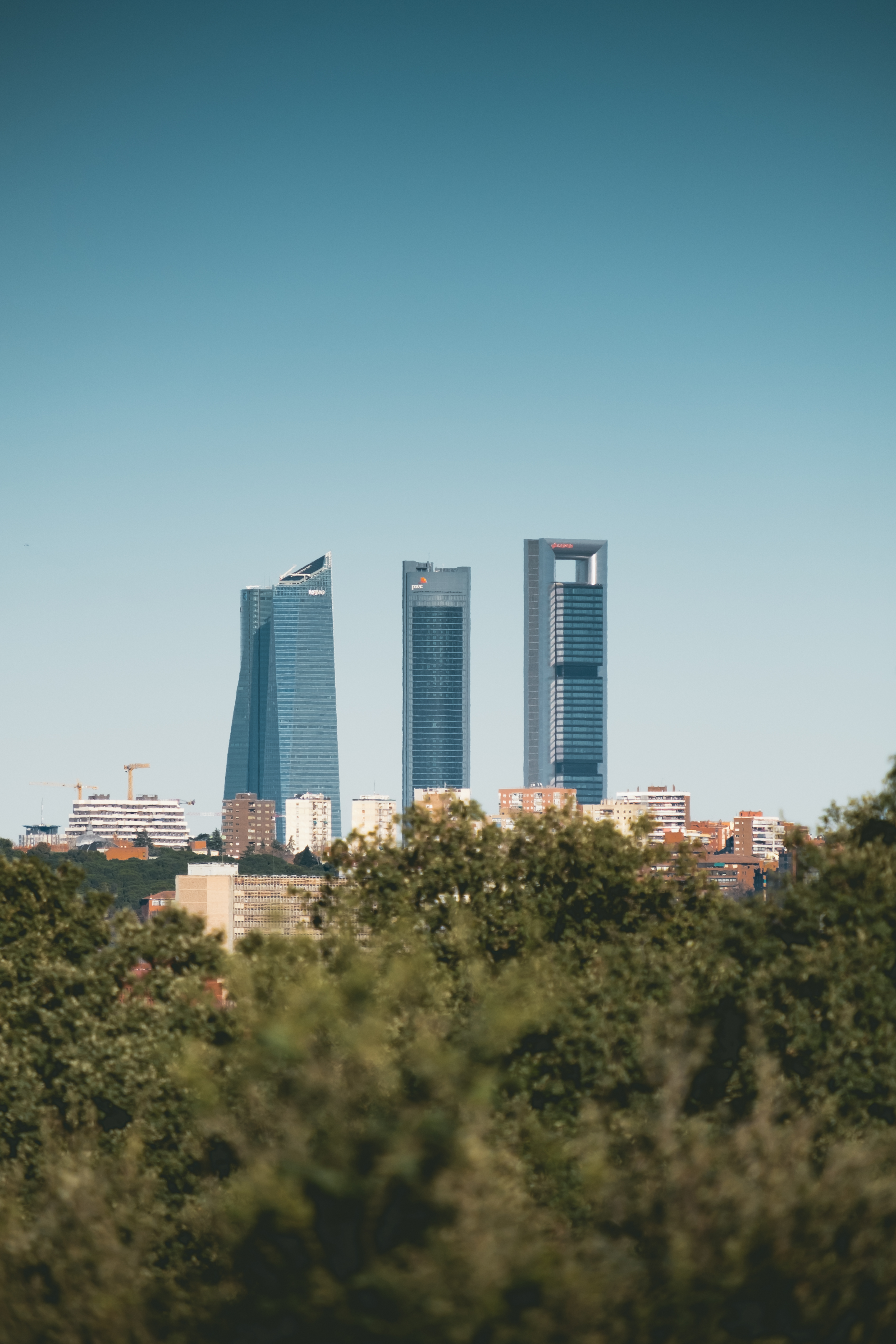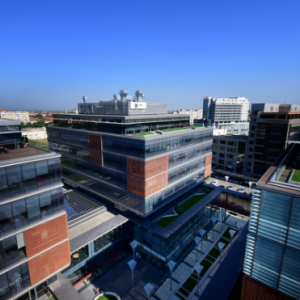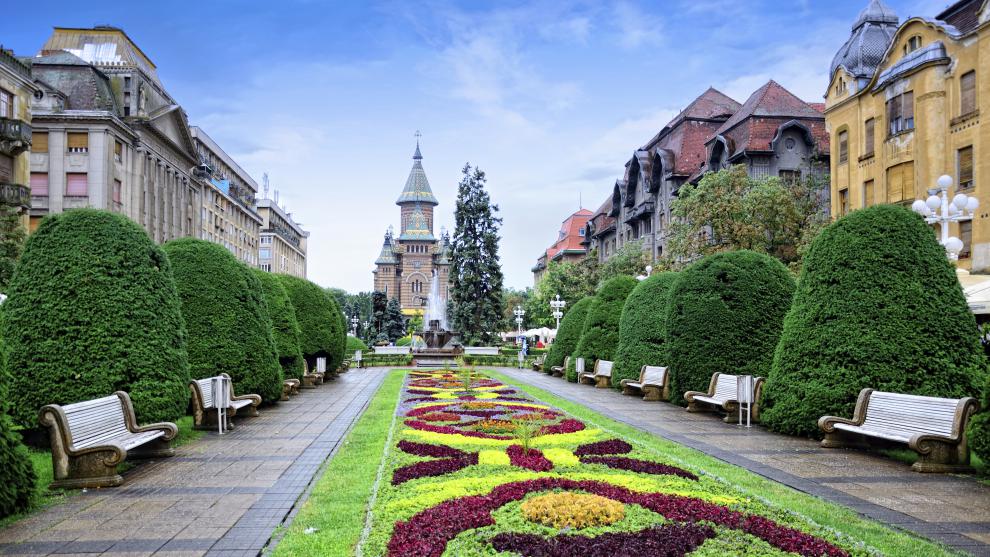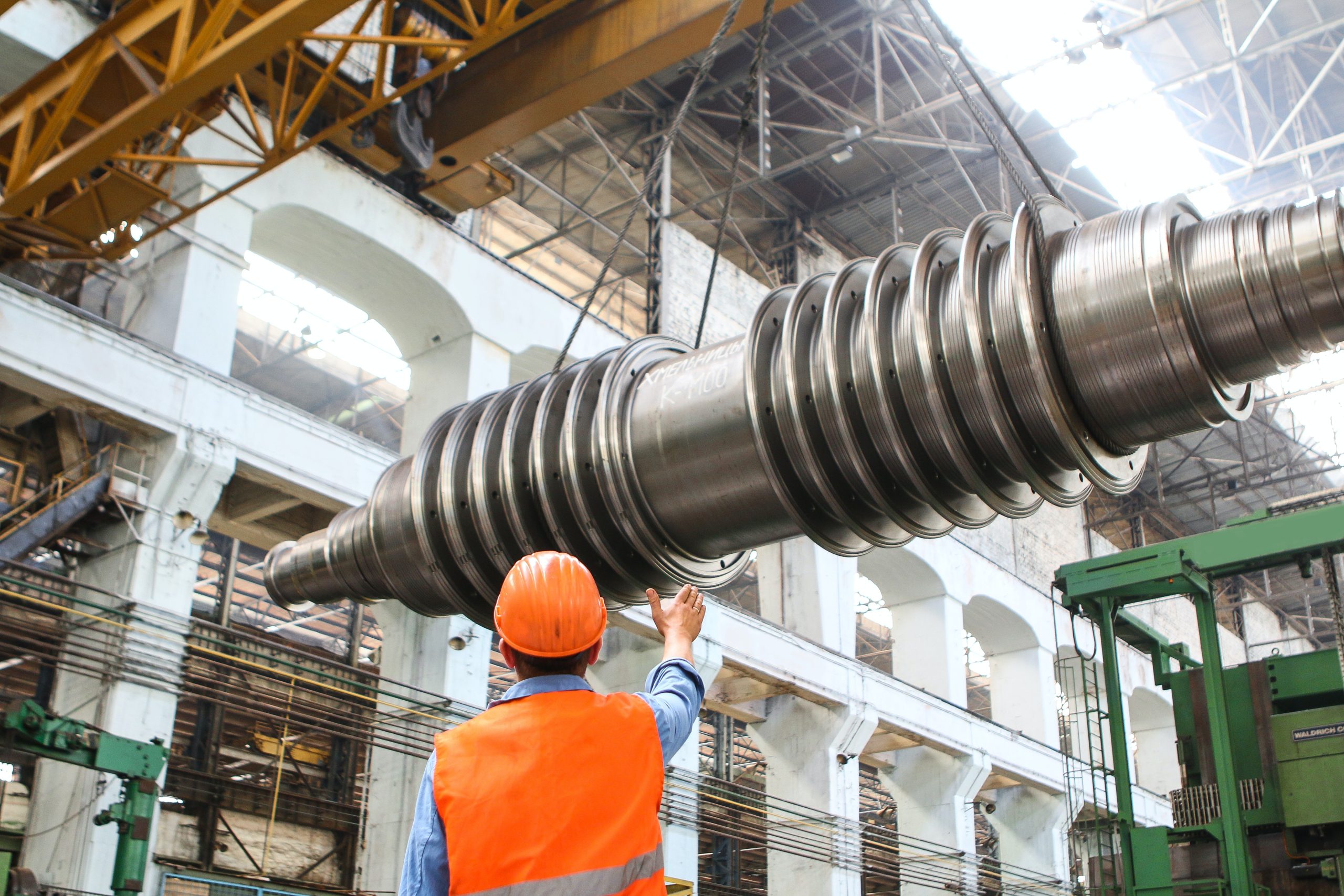A few days ago appeared in the Spanish newspaper La Vanguardia an article entitled “Madrid, el agujero negro de la economía española” (Madrid, the black hole of the Spanish economy).
The author, mentioning a paper by the University of Valencia, analyses the economic evolution of the region Madrid, site of the homonymous capital of Spain and counterposes it to what has happened in the rest of the country.
Such an analysis is always necessary, but the conclusions are not a surprise. So, if in 1980 the Region of Madrid represented 14.8% of the Spanish GNP, in 2020 this is 19.3%, the largest in the country and slightly over the Catalan 19% which has remained very stable in this 40 years period. They seem similar, but they are not. A significant difference between the Region of Madrid and Catalonia is that the first has a population in 2019 of 6.6 million, while the Mediterranean territory has 1 million more, totalling 7.6 million.
The conclusion is clear: not only Madrid does much more, but it also does much more with much fewer people.
In his article, the journalist recognizes that this phenomenon (the growth of main cities at the expense of their periphery) occurs in “other parts of the world” (en otras zonas del mundo,… I would rather say in all countries hardly any exception). This is no surprise, we have known for years that big cities attract talent, people and wealth in detriment of rural areas or smaller cities, as can be read in this article about urbanization.
The question is not why Madrid grew so much. This is normal for all major cities and regions. The question, in fact, is how is it possible that Catalonia, which in fact means Barcelona because the rest of the region outside its capital and metropolitan area counts very little, has not grown at the same path. It should have attracted much more talent, much more investment, many more companies, much more positive attention from all the neighbouring regions that once looked at Barcelona as their normal business destination.
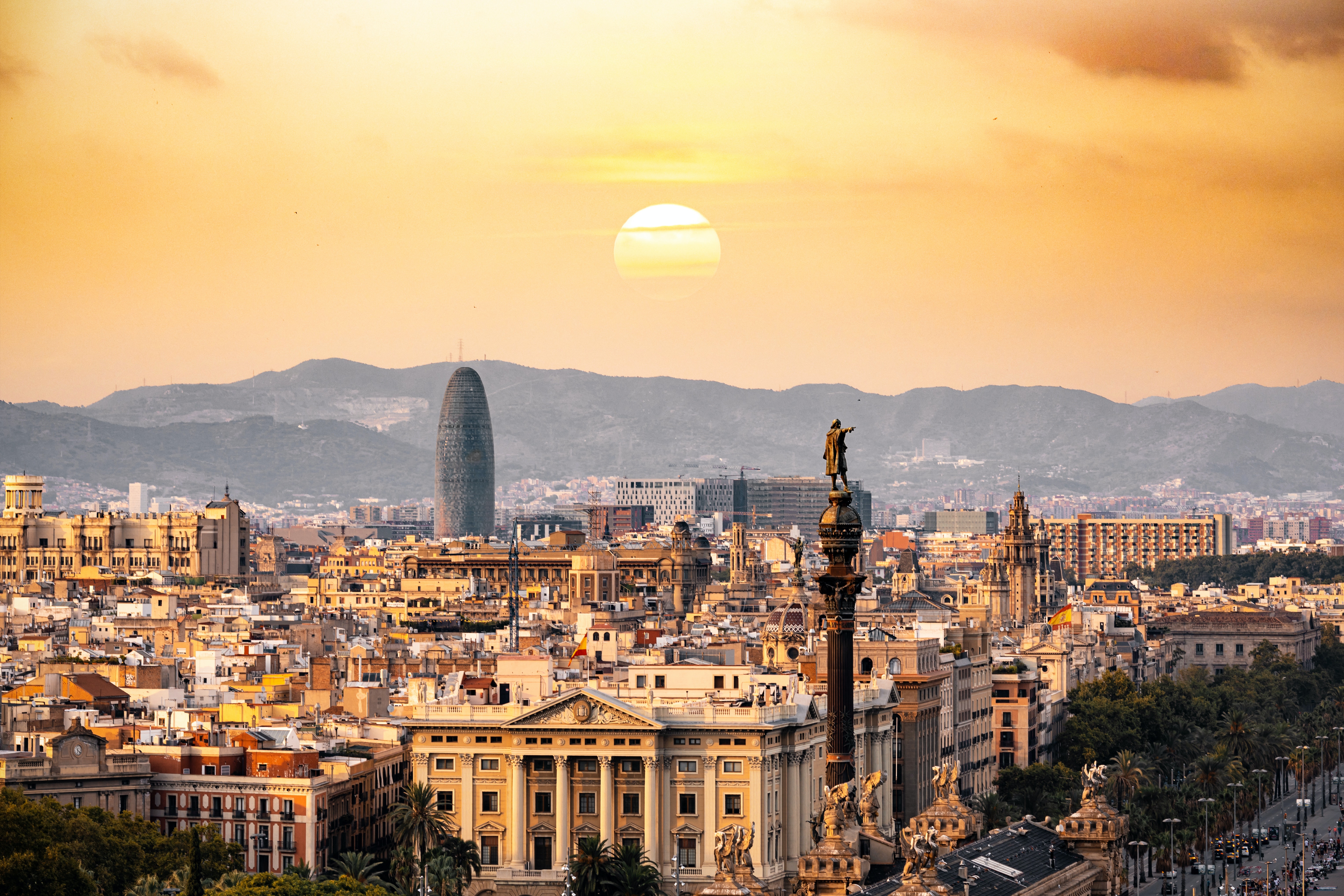
Barcelona had everything to become one of the most important cities in Europe. Its economic power was of the first rank. Industry and high-level services were always present and far more modern and developed than in Madrid. International managers preferred by far to move to Barcelona than to Madrid. The appeal of the sea, the mountains, the beauty of the city, the excellent quality of life, the top infrastructures, the cultural background, the education offers with worldwide recognized business schools,… Tourism has loved Barcelona since 1992 far more than any other Spanish (Mediterranean, Western Europe almost) city. To give an example of its power, Barcelona was the world capital for editorial houses in the Spanish language. Authors like García Marquez, Isabel Allende, Mario Vargas Llosa, and many others had their agents in Barcelona. A market of more than 500 million people managed from a city that had a fantastic present and an amazing range of possibilities for the future displayed in front of it. If we define Competitiveness as the quality of being wanted despite the cost, Barcelona was by far much more competitive than Madrid.
But something went very wrong. Thirty years after the Olimpic games, the city seems have lost its momentum, a certain air of decay impregnates its reality, it looks at Madrid with envy and – as can be understood in the mentioned article – accuses the capital of unfair competition.
No. The success of Madrid and the stagnation – or even decay – of Barcelona results from the difference of doing things well or doing them wrong.
Madrid has done things well.
Barcelona has done them wrong.
So, what was so wrongly done in Barcelona that took it to lose its competitiveness in front of Madrid?
Easy: the political and social unrest linked to the nationalist movement.
If Barcelona has known worldwide in the last years is not for all its qualities and beauties. It has been known for populist and nationalist massive demonstrations, scenes of street violence and unloyal politicians not governing for the good of the citizens, but only for themselves and their friends. And all this with the support of hundreds of thousands of cheated well-intended citizens that believed the politicians’ statements about the bright future that would expect an independent Catalonia.
Let’s remember that to be competitive, a city, region or country needs to enjoy political and economic stability besides full working administrations. This has been a reality in Madrid, not in Catalonia.
It is sufficient to look at the chart of the different European regions in the “The EU regional competitiveness index 2019” issued by the European Council:
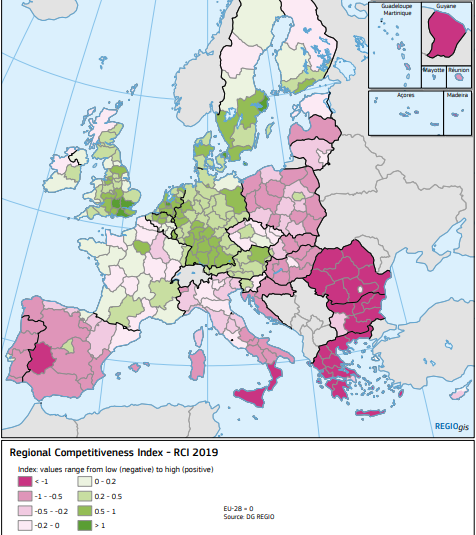
and the scorecards for both regions, Madrid and Catalonia:
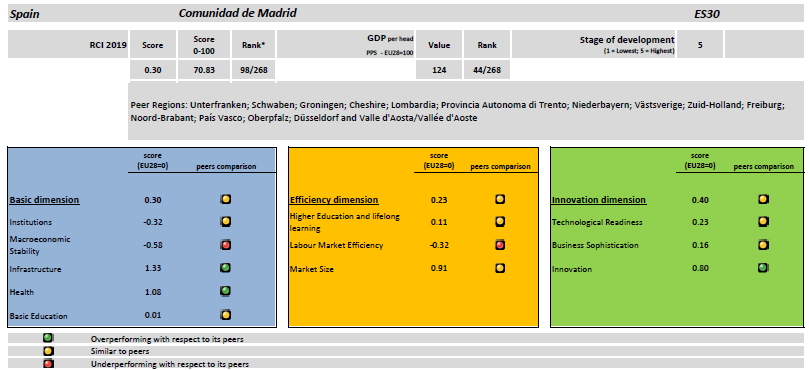
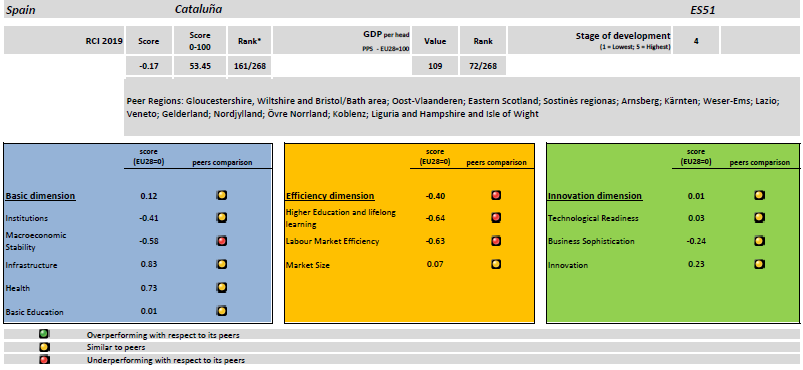
And this way, thru nationalism, is how you undermine the future of one of the most admirable and admired cities in Europe and the region it is capital of.
As I am from Barcelona, I know the problem well. I saw how, slowly, companies have started moving their sites away, their best most qualified staff, their meetings, their laboratories, their centres of decision. I have seen how ex-pats did not want their kids fully educated in a language – Catalan – which deserves the utmost protection, but with no international presence at all preferring Madrid and the Spanish language for their families.
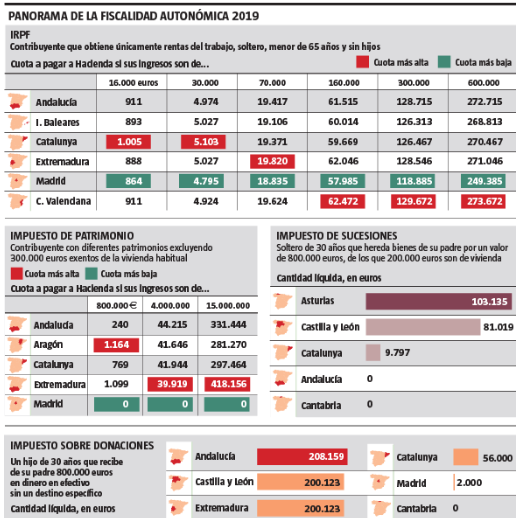
And of course, there is the tax problem. While Madrid has reduced taxes consistently in the last years for citizens and companies, Catalan politicians have increased them year after year. On the right, the green squares are for the region with lowest taxes (always Madrid) while the red go to the highest levels in 2019. For 2020 Catalonia has applied new increases.
Is it Madrid’s fault to try to attract investment and talent? No, it is their obligation. The same obligation that Catalonia has and ignores, wasting its limited resources in detrimental nationalism.
No one can blame Madrid for doing things well and taking advantage of the mistakes of other regions. Can anyone doubt that the same would have happened had they only seized the chance?
I have realized that very often, things happen not because someone does them especially well, but because the others do them so badly that the less bad choice takes the whole attention.
Companies, talent, trade fairs, ex-pats, investment,.. did not go to Madrid, they left Barcelona, which is very different.
How can this situation change? Returning to normality. As easy as that. With a government in Catalonia that forgets nationalism and starts working to develop the region, making it attractive again to everyone. A government decided to reduce expenses in unnecessary identity issues and with the capacity to drop taxes, to free the market, to respect everyone’s culture, to look for collaboration and not for confrontation. If this does not happen, Madrid will keep growing and Catalonia falling.
I hope this can be a lesson for anyone caressing nationalistic dreams.
